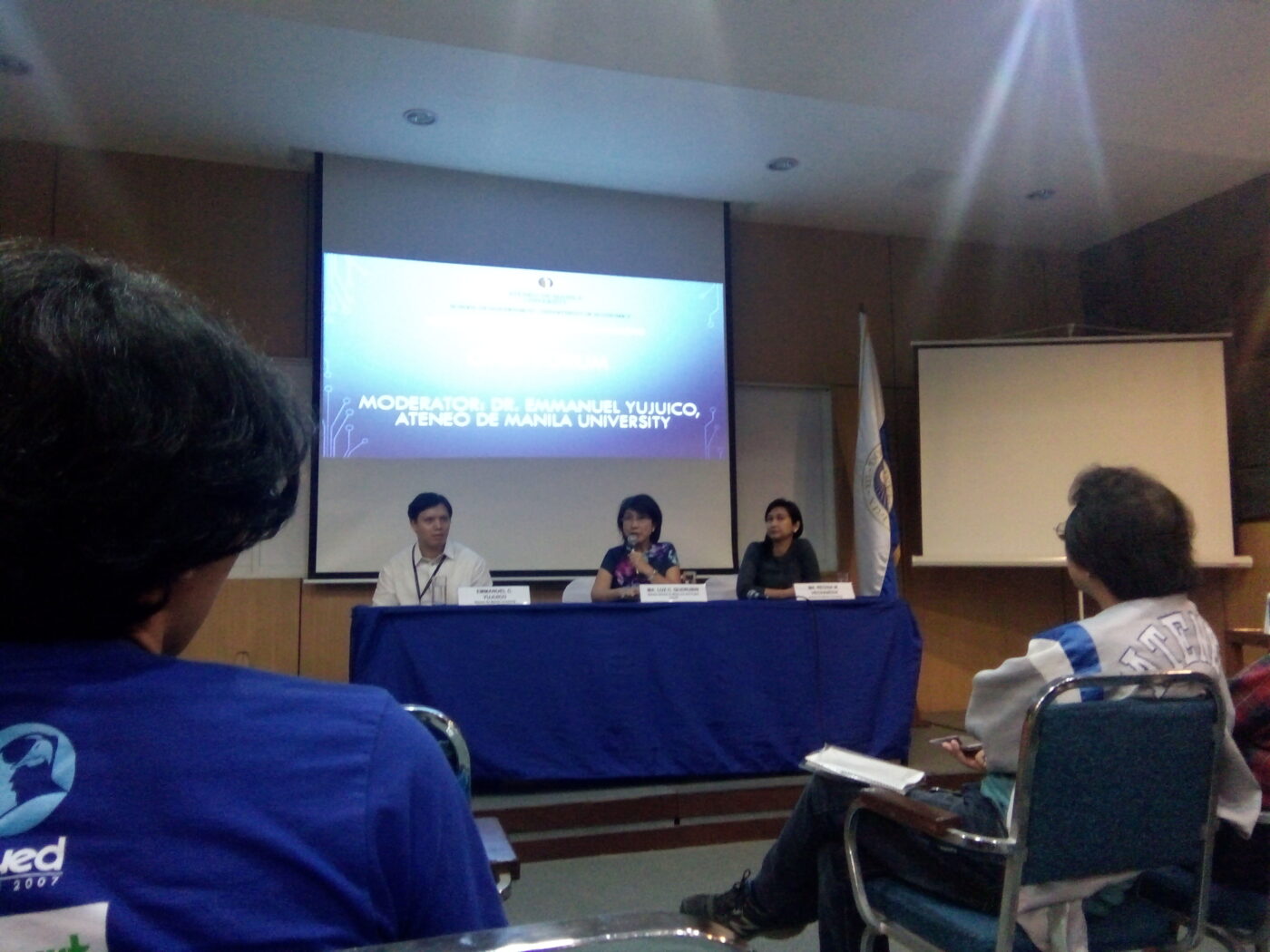TO TACKLE the pressing issue on the war on drugs in the Philippines, the Ateneo School of Government (ASOG) and Ateneo Economics Department held a forum on the economics of anti-drug campaigns on January 23 at the Faura AVR.
This forum is one of the actions the Ateneo de Manila University has taken in response to the lethal anti-drug campaign conducted by the Duterte administration. University President Jose Ramon Villarin, SJ released a statement last July on extrajudicial killings and the importance of human life and dignity, and an evidence-based forum concerning human rights and health perspectives on anti-drug campaigns was held on October 3 last year.
Copies of the policy report titled “Anti-Illegal Drugs Campaigns: What Works and What Doesn’t Work” from the previous forum were also given out as it also features different perspectives on the issue of illegal drugs.
The role of economics
Emmanuel Yujuico, PhD of the Economics Department said that although the interest of the ASOG in the policy implications of the government’s activities is apparent, the interest of the Economics Department might not be.
“It’s our interest because among other things, we are interested as well in illicit markets, not just legal ones, where they have their own supply and demand dynamics at both the national and international levels,” he said.
He also said that economics is relevant in finding solutions to the war on drugs situation in the Philippines.
“Economics also deals with the allocation of scarcity sources, so our government asks our resources in dealing with the drug problem and it makes [the allocation] of its resources, budgeting for health, or law enforcement awareness campaigns and so on, where should we put our resources to obtain the best returns,” he said.
Lessons from the past
Studies on drug policies has shown that previous wars on drugs have not been successful. John Collins, PhD, the Executive Director of The London School of Economics IDEAS International Drug Policy Project and the coordinator of the Expert Group on the Economics of Drug Policy, shared his insights in the forum through Skype.
His talk focused on two specific things: international efforts to deal with narcotics and the responses of developing countries like the Philippines to drug problems.
“This idea of a drug-free world is not new. What President Duterte is saying has been planned many, many times over the last century. The thing is every single time this has failed,” Collins said.
Actions to obtain a drug-free community has been attempted many times before, but it is a complex problem that could not be solved by a single solution. He noted that more than three decades ago, anti-drug policies have even become an “autopilot.”
“We’ve actually learned a lot of lessons from the past. By 1980’s this policy [on war on drugs] was more or less an autopilot, there was a general sense of repressive model proliferating around the world,” he said.
Philippine context
According to the Associate Chair of the Economics Department Philip Arnold Tuaño, PhD, this drug campaign of the current administration seems to have been concealing a number of its development policies which in turn, has taken “a very high toll in terms of social and human cost.”
Collins also said that the drug policies in the country are relevant because of its effects to the economy and people.
“In the case of the Philippines, this is significant right now because of instability, loss of human capital, [it is going to take] decades for some communities to recover,” he said.
As one of the “reactors” in the forum, Associate Dean for the Ateneo School of Medicine and Public Health Ma. Luz C. Querubin, MD, said that the drug problem experienced in the country has many dimensions that must be addressed, and that criminalization alone is not the best solution.
“[The substances that] people are addicted to are here to stay because of the human desire for pleasure which is just as old as humanity itself. Trying to find meaning and trying to find pleasure is something that we will always seek out. That is the reason why the drug problem could not be addressed [by] criminalization alone, because more than a criminal act, it is actually a socio-economic, psychological, and a biological need all rolled into one,” she said.







